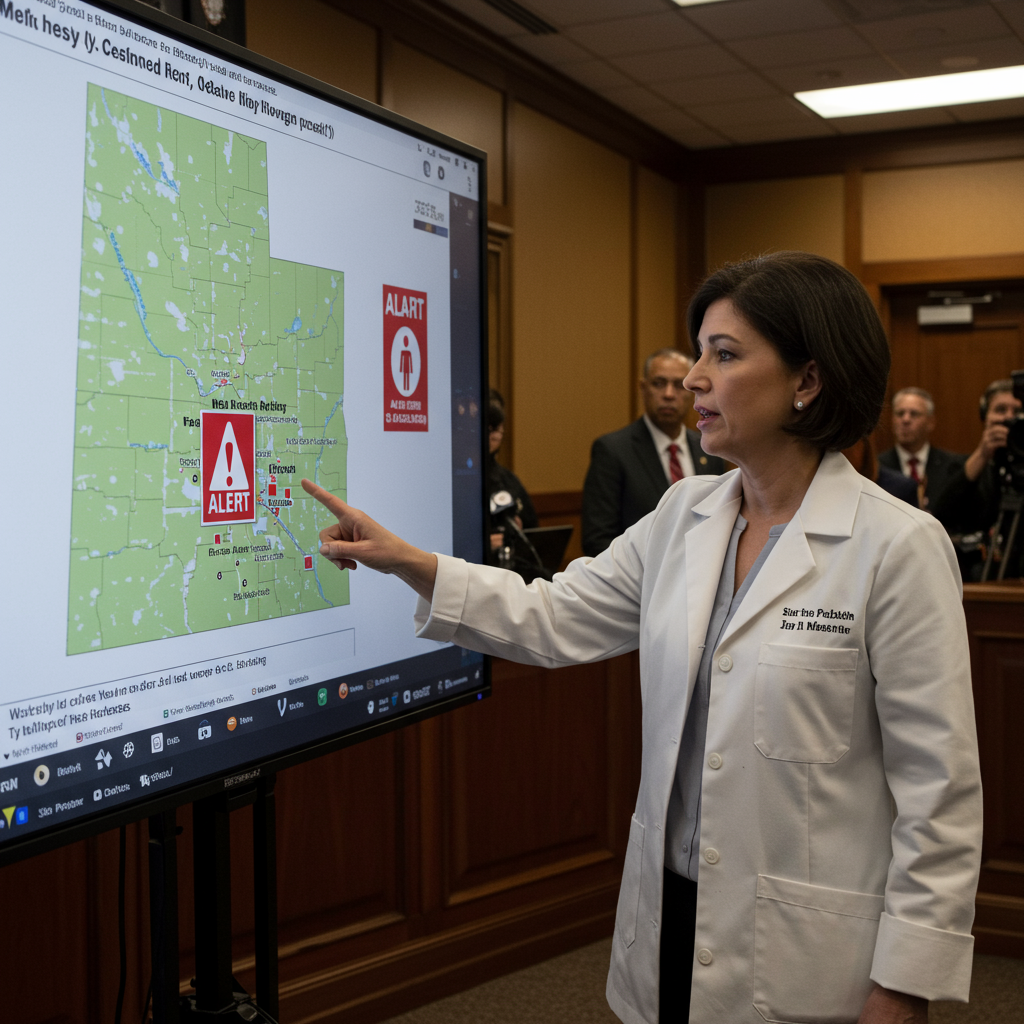Measles Cases Confirmed in Utah: Unvaccinated Individuals Test Positive
Utah state health officials have confirmed a total of three positive measles cases across the state, prompting public health action and renewed calls for vaccination awareness. The announcement follows two newly identified cases reported less than a week after the state’s initial diagnosis.
The two latest individuals diagnosed with measles are located in Utah County and the southwest health district. Importantly, health officials have clarified that these two new cases are not related to each other, nor are they linked to the first person diagnosed with the illness. This suggests potential separate exposure events.
Details regarding the state’s initial case, reported earlier in June, indicated it was an adult (aged 20-40) in Utah County who was unvaccinated and had no recent travel outside of Utah. This specific detail led officials to suspect the infection may have been acquired locally, unlike previous Utah cases which were often linked to international travel. The first case also potentially exposed others by visiting public locations, including a hospital emergency room and a health center, before diagnosis.
Understanding Measles: Highly Contagious and Airborne
Measles is a highly contagious viral infection known for its ability to spread easily. It’s transmitted through the air when an infected person coughs or sneezes. The virus can remain infectious in the air and on surfaces for up to two hours after the infected person leaves an area, making it one of the most contagious diseases known. Individuals infected with measles are contagious from four days before the characteristic rash appears until four days after.
Symptoms of measles typically develop 7 to 21 days after exposure, though often appearing around 10 to 14 days. Initial signs include a high fever, cough, runny nose (coryza), and red, watery eyes (conjunctivitis). A distinctive red, blotchy rash usually appears about three to five days after the first symptoms begin, often starting at the hairline or on the face and then spreading downwards across the body. The fever may spike when the rash emerges.
While many people recover, measles can lead to severe complications, especially in young children, pregnant women, and those with weakened immune systems. These complications can include pneumonia, brain swelling (encephalitis), blindness, and even death. Recent measles outbreaks in other U.S. states have tragically resulted in fatalities, particularly among unvaccinated individuals.
Prevention is Key: The MMR Vaccine
Health officials strongly emphasize that the most effective way to prevent measles is through vaccination. The Measles, Mumps, and Rubella (MMR) vaccine is highly effective. Two doses of the MMR vaccine are recommended for full protection, providing about 97% immunity against measles. One dose offers about 93% protection.
Vaccination is particularly crucial given that infants younger than one year old cannot receive the standard MMR vaccine, leaving them vulnerable. Utah currently has a high overall childhood vaccination rate, which helps provide community protection (herd immunity), but pockets of unvaccinated individuals remain susceptible and can facilitate transmission.
Public Health Response and Recommendations
In response to these confirmed cases, public health investigators are actively working to identify any locations where potential exposures may have occurred. They are tracing contacts of the infected individuals to prevent further spread.
Officials urge anyone who suspects they may have been exposed to measles or who develops symptoms (fever, cough, runny nose, red eyes, followed by a rash) to:
Isolate themselves immediately to avoid exposing others.
Contact their healthcare provider by phone before visiting a clinic or hospital. Calling ahead is critical to allow the facility to take precautions and prevent potential exposure to staff and other patients.
Individuals unsure of their vaccination status or who are unvaccinated are encouraged to talk to their doctor about getting the MMR vaccine. Receiving additional doses of the vaccine, even if previously vaccinated, poses no health risk and can help ensure maximum protection. The resurgence of measles in the U.S., often linked to unvaccinated travelers or clusters, highlights the importance of maintaining high vaccination rates globally and locally.




